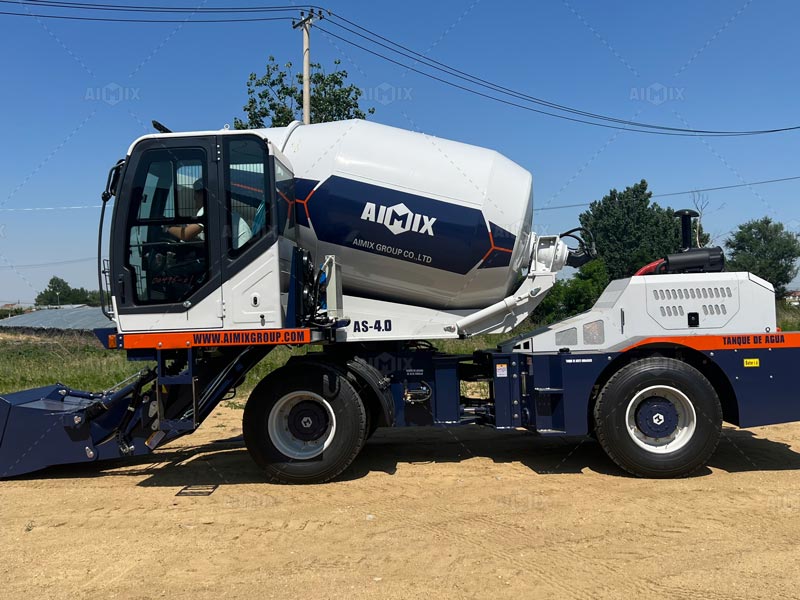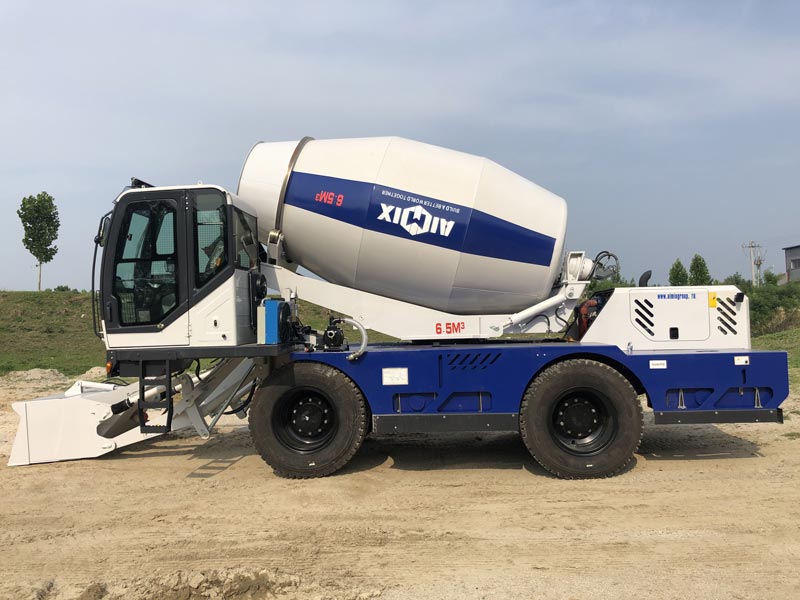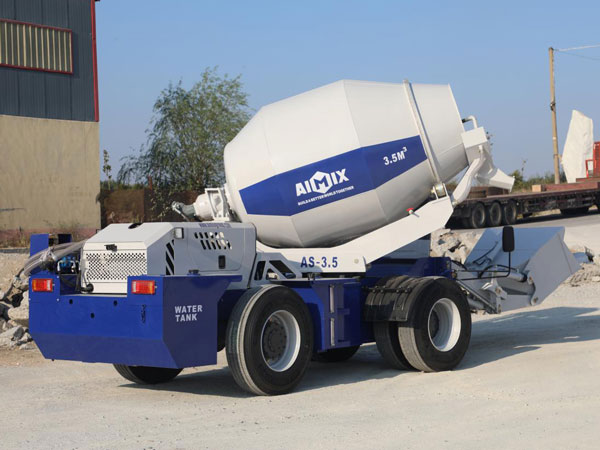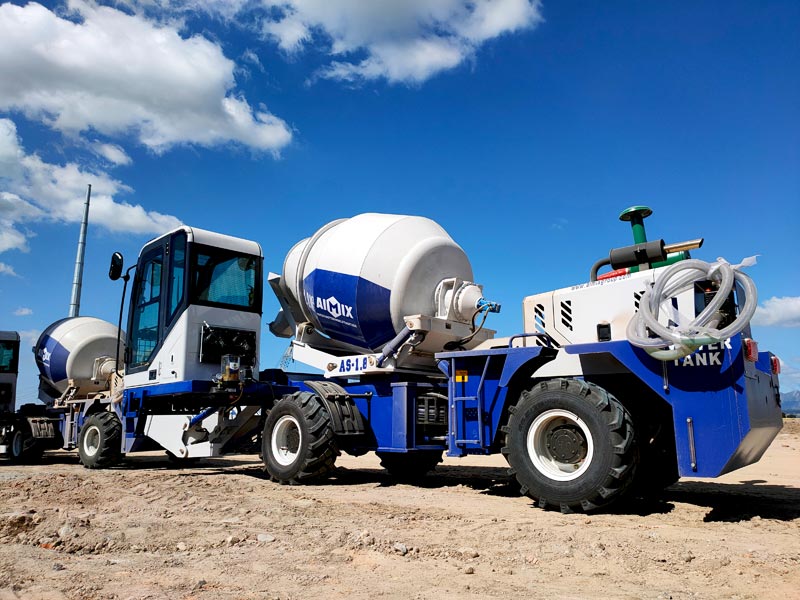Self-loading mixers are essential tools in the construction industry. They combine loading, mixing, and discharging functions into one machine. To ensure they perform at their best, regular maintenance and proper operation are crucial. This guide will help you maximize the efficiency and lifespan of your self-loading concrete mixer machine.

Regular Maintenance for Optimal Performance
Regular maintenance is key to keeping your self-loading mixer in top condition. A consistent maintenance schedule can prevent breakdowns and ensure smooth operation.
Daily Inspections
Conduct daily inspections to check for any visible wear and tear. Look for leaks, cracks, or loose components. Addressing minor issues promptly can prevent major problems later.
Lubrication
Lubricate all moving parts regularly. Proper lubrication reduces friction and wear, ensuring smooth operation. Follow the manufacturer’s guidelines for the type and frequency of lubrication.
Cleaning
Clean the mixer after each use. Concrete buildup can affect the machine’s performance and lead to malfunctions. Use a pressure washer to clean the drum, hopper, and other components thoroughly.

Proper Operation Techniques
Understanding and following proper operation techniques can significantly impact the performance and lifespan of your self-loading mixer truck. Here are some key points to consider:
Loading
Ensure the materials are loaded correctly into the hopper. Overloading can strain the machine and affect the quality of the mix. Use the recommended proportions of cement, sand, and aggregates.
Mixing
Monitor the mixing process closely. The drum should rotate at the recommended speed for optimal mixing. Avoid running the mixer at high speeds for prolonged periods, as this can cause excessive wear.
Discharging
Discharge the concrete promptly after mixing. Delays can cause the mix to set inside the drum, making it difficult to clean. Use the discharge chute or other mechanisms as recommended by the manufacturer.

Addressing Common Issues
Even with regular maintenance and proper operation, issues can still arise. Knowing how to address common problems can help you keep your self-loading mixer performing at its best.
Clogged Hopper
A clogged hopper can affect the loading process. Check for any obstructions and remove them promptly. Regular cleaning can prevent this issue.
Inconsistent Mixture
An inconsistent mixture can compromise the quality of your concrete. Ensure the drum rotates at the proper speed and that the materials are loaded in the correct proportions.
Hydraulic System Issues
Hydraulic system issues can affect the mixer’s operation. Regularly check the hydraulic fluid levels and look for any leaks. Addressing these issues promptly can prevent more serious problems.
Tips for Extending the Lifespan of Your Self-Loading Mixer
Extending the lifespan of your self-loading mixer involves more than just regular maintenance. Following these additional tips can help you get the most out of your machine.
Choosing the Reliable Manufacturer
As a concrete equipment manufacturer, AIMIX Group is known for producing efficient and reliable equipment. Know more about it by clicking this link: https://aimixgroup.com/.
Training Operators
Ensure that all operators are well-trained. Proper training can prevent operational errors that can lead to damage. Experienced operators can also identify potential issues before they become serious problems.
Using Quality Materials
Use high-quality materials for your concrete mix. Poor-quality materials can cause excessive wear on the mixer. They can also affect the consistency and strength of the concrete.
Storing Properly
Store the mixer in a dry, sheltered area when not in use. Exposure to harsh weather conditions can cause rust and other damage. Proper storage can significantly extend the lifespan of your machine.
Conclusion
Keeping your self-loading mixer performing at its best requires regular maintenance, proper operation, and addressing common issues promptly. Daily inspections, lubrication, and cleaning are essential for optimal performance. Proper loading, mixing, and discharging techniques can prevent operational errors. Address issues like clogged hoppers, inconsistent mixtures, and hydraulic problems as soon as they arise. Finally, train operators, use quality materials, and store the mixer properly to extend its lifespan.
